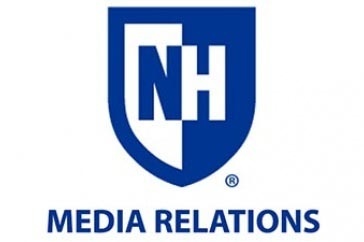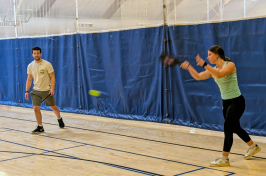Expert Available to Comment on Market Fairness During Government Shut Down

DURHAM, N.H.—With no end in sight for the current government shutdown, new research shines a light on how the congressional standoff could impact investors and the U.S. financial markets. Preliminary research by Daniel Bens, a professor of accounting at the University of New Hampshire reveals that insider trading spiked during the last prolonged shutdown and found much of the gain came from “opportunistic” sales — trades made by company executives or others with access to nonpublic information.
“We didn’t observe much of an impact during the first week of the shutdown, likely because insiders were unsure whether the Securities and Exchange Commission’s enforcement would be disrupted,” said Bens. “But once it stretched past the first week, and 94% of the SEC’s workers were furloughed, insiders likely became more confident with the limited enforcement, and insider trading profits increased significantly.”
In the study, available in preprint on SSRN and under peer review by the journal The Accounting Review, researchers analyzed thousands of insider stock trades, comparing the trade activity of U.S. firms during the shutdown with other years, as well as with firms in other countries where oversight continued. They also reviewed SEC enforcement records before, during and after the shutdown.
Their findings show that during the shutdown from Dec. 27, 2018 to Jan. 25, 2019, insider trades were unusually profitable, averaging 0.016% of a firm’s market value compared to 0.011% in normal periods. For a company worth around $14.6 billion (the average value within the study’s sample), that translates into an extra $800,000 to $1.6 million in profit on a single trade compared to similar trades in other years.
When the federal government shuts down, agencies like the SEC are forced to furlough most of their staff. That means there are fewer regulators watching over so-called opportunistic trades — those timed around nonpublic information rather than routine, pre-scheduled transactions.
While an increase in insider trading may not be the first consequence the public thinks about when there’s a government shutdown, it’s not without impact.
“I can’t say it is something that should prevent anyone from investing,” said Bens. “However, it does mean that an individual investor is at more of an information disadvantage if insiders are trading on their private information. So, they may be trading with someone with better information, which means the outsider could buy or sell at the ‘wrong’ price.”
Bens is a professor of accounting at UNH’s Peter T. Paul College of Business and Economics. His research focuses on practical accounting issues facing companies and markets. He received his PhD from the Wharton School at the University of Pennsylvania, and has held faculty positions at INSEAD, the University of Chicago’s Booth School as well as the Eller College of Management at the University of Arizona.
###
Latest News
-
October 8, 2025
-
October 2, 2025
-
September 24, 2025
-
September 15, 2025
-
August 21, 2025















































